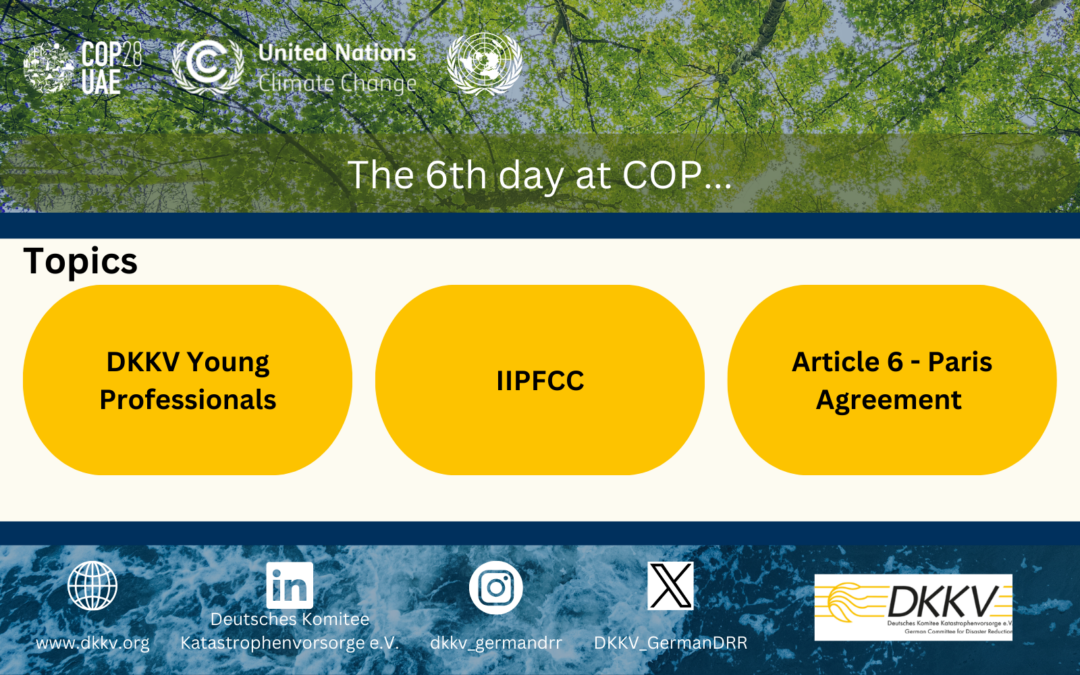DKKV Young Professionals at the COP
Two of the DKKY Young Professionals, Denis Wengenroth and Stefan Mönnich, are currently in Dubai and are following the COP on site. The two have already been able to take part in numerous panels and events on topics that are particularly relevant to DKKV’s work. These include, among others, the future of fossil fuels, Loss and Damage Funding, Early-Warningsysterms For All, and global health in relation to the effects of the climate crisis, in addition to the biggest questions about the development of fossil fuel use.
More detailed insights into the events attended and impressions of the COP can be found at Dennis Wengenroth.
IIPFCC
The International Indigenous Peoples Forum on Climate Change (IIPFCC) was established in 2008 to enable indigenous peoples to participate in UNFCCC processes. Indigenous peoples only represent less than 5 % of the global population but protect 80 % of biodiversity around the world. Deforestation is not only releasing carbon back into the atmosphere but is also destroying the People´s living foundation. That’s why it is crucial to give those people a voice to learn from their experiences to develop effective nature-based solutions. Thus, the Indigenous People´s day at this year´s COP is supposed to bring together different stakeholders, with indigenous peoples at the forefront, to explore and discuss expectations for COP28, including on the transition to a low carbon economy and effective financial flows for Indigenous People´s stewardship of nature, climate and biodiversity. As they have been exposed to adaptational challenges, People´s have established their own strategies for resilience in a changing world which could serve as a foundation for further adaptation mechanisms. Therefore, it is important to include indigenous peoples´ recommendations on the meaningful representation of their volks in climate policies and action.
Sources: COP 28 UAE, IIPFCC
Article 6 of the Paris Agreement
Article 6 of the Paris Climate Agreement permits international market-based cooperation between the signatory states in connection with emission reductions in order to meet national climate protection targets. The technical term for these “certificates” is internationally transferred mitigation outcomes (ITMOs) and are created when a country can trade them with another country, for example by reducing international air traffic. In order to implement intergovernmental cooperation, a mechanism comparable to the European Emissions Trading System at national or regional level would be a helpful instrument. In future, not only countries could offset certificates against climate protection targets, but private economic players could also be involved. The problem is that it is not yet clear how internationally acquired ITMOs can be traded between countries.
Further information on the inconsistencies and ambiguities can be found at Friedrich Bohn.


